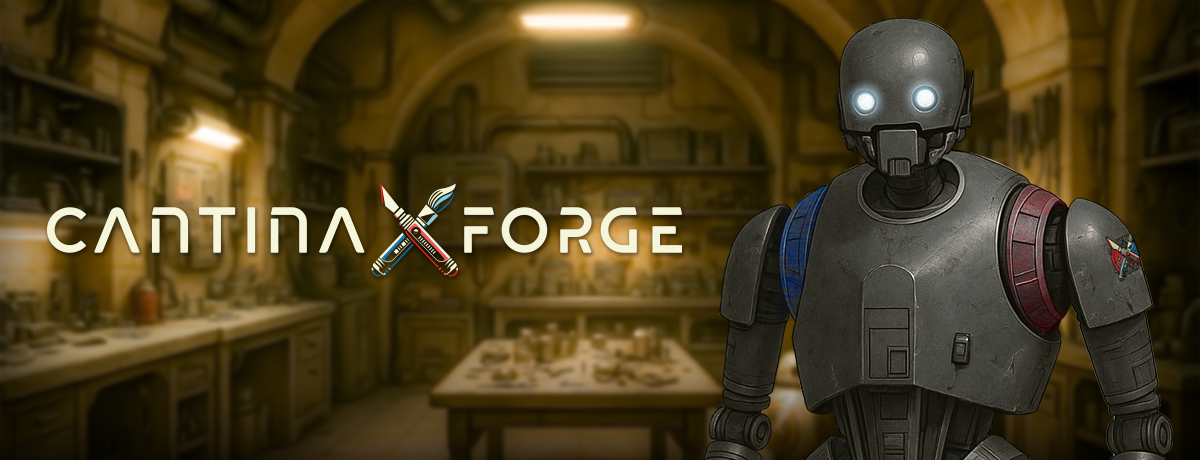
Star Wars Outlaws composer and Grammy nominee Wilbert Roget II takes us behind the music of the soundtrack to the latest Star Wars video game, his journey as a composer for video games, and how Outlaws allowed him to return to the Star Wars galaxy.
Composer Wilbert Roget II’s not-so-stealthy mission for Star Wars Outlaws was to create music that felt like it belonged in a Star Wars story, while also sounding like something completely new. A task almost as intimidating as facing a raging rancor, the latest score by the composer — who cut his teeth writing original music for some vintage Star Wars games like Star Wars: The Old Republic — is an undeniable success, landing Roget a Grammy nomination for Best Score Soundtrack for Video Games and Other Interactive Media.
An early love of music and video games led Roget to a career creating video game soundtracks. “I grew up as a classical pianist. That was my first musical love, ever since I was maybe four years old,” Roget tells StarWars.com. “And then later on, in middle school and high school, was when I started playing video games. The game Final Fantasy VII was the first time that I really noticed the music in games and was encouraged to write music for games as a result.” After majoring in music at Yale, Roget landed a job at LucasArts working as a music editor and assistant. “And eventually from there, I started writing original music for some of our LucasArts games, like Star Wars: The Old Republic and Star Wars: First Assault.”
After a stint as a freelance composer, Roget returned to the Star Wars galaxy with ILM Immersive’s Vader Immortal: A Star Wars VR Series. Roget describes a successful soundtrack as one, “where it sounds as though the music is simply emanating from the world. It’s just the logical conclusion of everything that you’re seeing in the art, in the pacing of the gameplay, and the animation, everything just comes together in a certain way, and the music just makes perfect sense in that world.” For Vader Immortal, Roget felt like he was missing something until coming to a realization that the plot was, at its heart, a love story. “I wrote the Corvaxian theme, which you most prominently hear on a skiff ride as you’re coming down to the ruins. It has this tragic love story feel to it and that’s what I needed to make that realization. And then that melody, which came out of that realization, found its way into a bunch of other pieces that I eventually wrote for the score.”
For Star Wars Outlaws, Roget started with the heart of the game and music — Kay Vess’s theme. From the beginning, Ubisoft’s development studio Massive Entertainment and Roget wanted this project to bring new sounds to the Star Wars mix, including establishing new audio to bring the underworld to life. “That’s why you’re hearing these synthesized basses and musical sound design world instruments. There’s some Spanish-influenced guitar in there, and, of course, the electric violin. And this is all because I wanted to establish we are going somewhere different,” he says. “Eventually you get the orchestra, the John Williams-inspired harmonies that establish that this is going to be an adventure.”
While Roget worked to create a new feel for Outlaws, he also looked to past Star Wars soundtracks from Williams for inspiration. The soundtrack from Star Wars: A New Hope was his biggest influence for the project. The final score for Outlaws — which included about four hours of music — took two and a half years to complete, including additional music from co-composers Jon Everist and Kazuma Jinnouchi as well as the cantina music and underworld songs by Cody Matthew Johnson, and featuring over 150 musicians in two orchestras — the Royal Scottish National Orchestra and Nashville Scoring Orchestra. Roget delivered music in stems — audio files that break down complete tracks into individual mixes — so strings, brass, and world instruments would be recorded separately and separated out so the Ubisoft teams could take the music and re-edit it, as needed.
Before he started writing, Roget played early versions of the game at Massive Entertainment in Malmö, Sweden, and received fly-throughs of some locations where the levels weren’t completely finished. By taking the camera through these locations, “You get a sense of how it generally feels. It’s almost like we’re collaborators in describing the scenes that we’re scoring to,” he says.
Tatooine stood out to Roget as a favorite location in the game, despite having written music for the beloved desert planet in several previous games. “It was a difficult balance of figuring out how we can get something that makes people who really love and know Star Wars to see that they’re being taken care of, but also that entices people who just want something brand new,” Roget notes. “For Mos Eisley, for instance, I put a lot of my own personality into that piece. I played the electric bass, but I actually play it with a double bass bow, on the lowest string, so you can kind of play it as if it’s a double bass. So it’s a very unique and very grimy and disgusting sound. We wanted all of Mos Eisley to branch off of that. The vibe is here’s a very diverse kind of alien area that’s way too busy and way too crowded, and there’s all kinds of shenanigans going on.”
Read the article in full here. The 67th Annual Grammy Awards take place tomorrow, February 2nd, 2025.
The post Star Wars Goes to the Grammys with Star Wars Outlaws Composer Wilbert Roget II appeared first on Jedi News.

